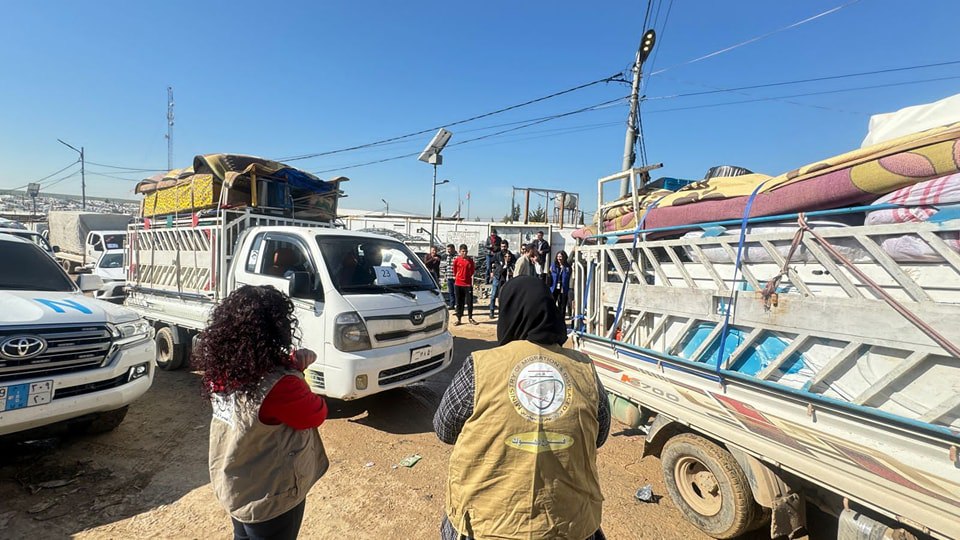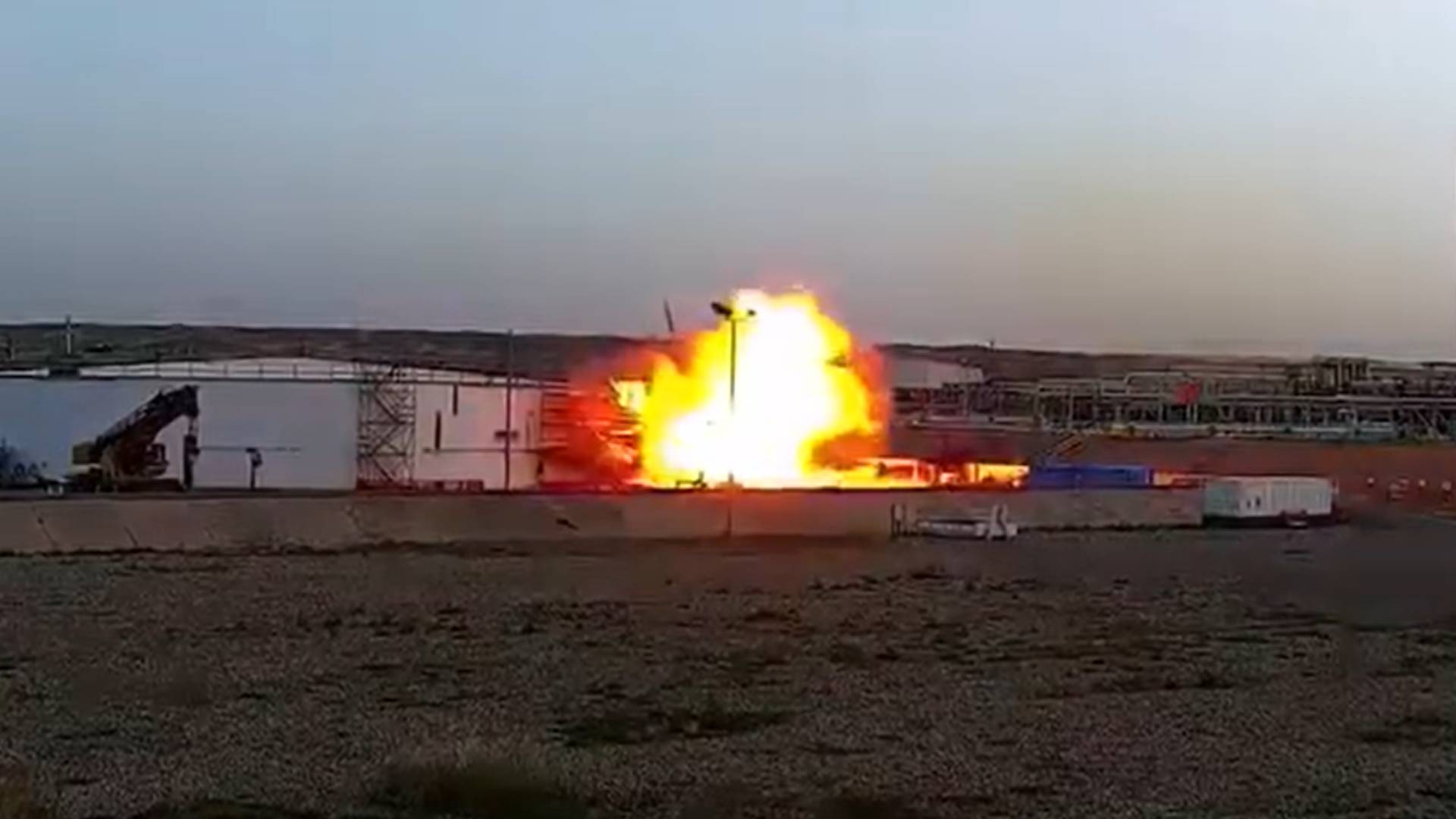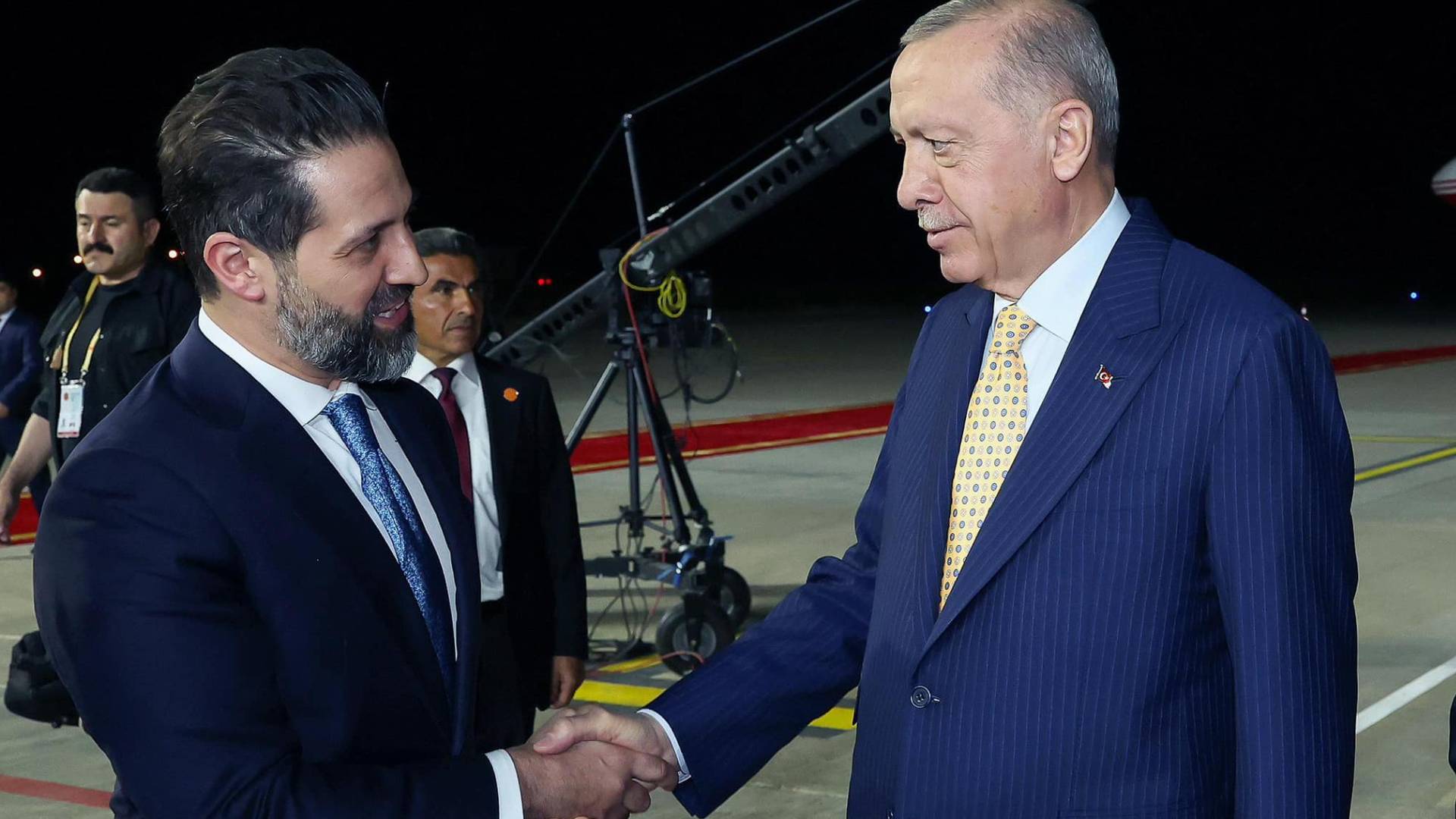Iraq Insists on Returning IDPs on Time
Reports 01:57 PM - 2024-03-18 Ministry of Migration and Displaced's Media
Ministry of Migration and Displaced's Media
IDPs returning to their homes.
The Iraqi Ministry of Migration and Displaced has formulated a comprehensive strategy to resolve the problem of internally displaced persons (IDPs). All IDPs in the Kurdistan Region must return to their homes by the end of July this year. To encourage their return, the Ministry of Migration offers a sum of 4 million Iraqi dinars and many other services to each family, in addition to facilitating the reconstruction of their regions.
There is no longer any threat to the return of the IDPs
Ronzi Ziad Sido, the head of the Migration and Refugees Committee in the Iraqi parliament, informed PUKMEDIA that the Ministry of Migration and Displaced will assist in enabling the IDPs to go back to their homes, and within this particular setting, a decision has been made to provide an incentive for IDPs to return.
She stated that this incentive consists of four million dinars, a plot of land, and job opportunities within the ministries, urging IDPs to seize the opportunity and take advantage of these benefits, as they will eventually be forced to return to their homes.
Ziad said the Iraqi Ministry of Migration and Displaced had initially intended to return all IDPs to their homes by June 30. However, the deadline was extended to July 30 to allow for school examinations. This decision was made considering that there is no longer any threat in their respective locations, allowing them to resume their regular lives.
The Iraqi government will bear the cost of returning the IDPs
The head of the Migration and Refugees Committee in the Iraqi parliament has stated that the Iraqi government is determined to ensure the return of the IDPs to their homes. During his visit to Sinjar (Shingal), Iraqi Prime Minister Mohammed Shia' al-Sudani emphasised the importance of supporting the IDPs and made the decision to provide them with all necessities and reconstruct their regions.
"Each day, numerous families opt to return to their homes. The Iraqi government, apart from fulfilling their necessities, will extend assistance not only to the IDPs residing in camps but also to those living in the cities," she stated.
32,000 displaced families remain in camps in the Kurdistan Region
PUKMEDIA's research indicates that the Iraqi government requires 128 billion dinars to provide each of the 32,000 families residing in IDP camps in the Kurdistan Region with 4 million dinars and 32,000 plots of land.
The majority of the IDPs are presently residing in camps located in Erbil and Duhok, which are 24 camps. Additionally, there are some IDPs who have chosen not to stay in the camps and instead live in the cities of Erbil, Duhok, and Sulaymaniyah.
While there is a lack of up-to-date data on IDPs in the Kurdistan Region, information obtained from the Kurdistan Regional Government's Migration and Displacement Bureau indicates that the most recent statistics from 2022 show a total of 664,798 internally displaced persons (IDPs) in the Kurdistan Region. Among them, 174,706 reside within camps, while 490,092 live outside of the camps.
"About 30 to 40 percent of the Kurdistan Region's IDPs have returned to their homes in the past two years, so it seems that there are about 400,000 remaining in the Kurdistan Region at present," Ziad said.
The International Organisation for Migration (IOM) reported that Iraq had the most IDPs in April 2016. Approximately 3.42 million individuals were forced to evacuate their homes, with the majority relocating to the Kurdistan Region and establishing themselves in camps. The Iraqi Ministry of Migration and Displaced is planning to carry out a census of the IDPs remaining in the Kurdistan Region following the implementation of its decision and end the issue of IDPs in Iraq.
In total, 6 million Iraqis were displaced from their areas due to the Islamic State (ISIS) war and the military operations of the Iraqi forces from 2014 to 2017.
The remaining IDPs in the Kurdistan Region pose a demographic threat
Iraq's move to return the IDPs is deemed crucial, and it is essential for the Iraqi government to act with integrity in facilitating their return. The presence of these IDPs poses a significant risk to the demographic composition of the region.
Daud Kalo Jundi, the head of the PUK's Sinjar headquarters, informed PUKMEDIA that the Iraqi government has designated a specific budget to address the issue of IDPs and facilitate their return to their homes, and as an initial measure, 10,000 affected families would get compensation.
"The decision by the Iraqi Council of Ministers and the Ministry of Migration and Displaced to address the issue of refugees and facilitate their return home is extremely significant," he said.
"It is crucial that the Iraqi government acts with integrity in returning these IDPs to their homes, as their presence in the region poses a significant demographic risk," stated Jundi.
In a statement, the Ministry of Migration and Displaced announced that it will provide the Joint Operations Command with a list of names of the residents in the camp, which will allow for an audit and facilitate their return, while also addressing social and tribal issues faced by the IDPs. The ultimate goal is to make it easier for the IDPs to return to their original places of residence.
Based on the most recent figures, there are currently 24 camps located in the Kurdistan Region that are providing shelter for internally displaced persons (IDPs) from Mosul province. These camps are home to around 32,000 families.
PUKMEDIA
More news
-
Officials Call for Urgent Investigation Into Khor Mor Gas Field Attack
10:31 PM - 2024-04-26 -
Another International Report Mentions Kurdistan's Limited Freedom
09:24 PM - 2024-04-25 -
U.S. State Department Mentions Deterioration of Journalists' Rights in Iraq & Kurdistan
06:48 PM - 2024-04-25 -
German Forces Commander Ended his Mission at Mam Jalal's Grave
12:28 PM - 2024-04-23
see more
10 Notable Individuals Receive Golden Bla Award
09:27 PM - 2024-04-23
DPM Talabani Asks Turkish President to Lift Ban on Sulaymaniyah Airport
11:43 AM - 2024-04-23
Iraqi & Turkish Presidents: Problems Should Be Resolved Through Dialogue
05:00 PM - 2024-04-22
PUK President: We Will Protect Journalists' Rights
03:10 PM - 2024-04-22
Most read
-
Officials Call for Urgent Investigation Into Khor Mor Gas Field Attack
Kurdistan 10:31 PM - 2024-04-26 -
Khor Mor Drone Attack Sparks International Reaction
Kurdistan 11:04 AM - 2024-04-27




.jpg)

 Application
Application


